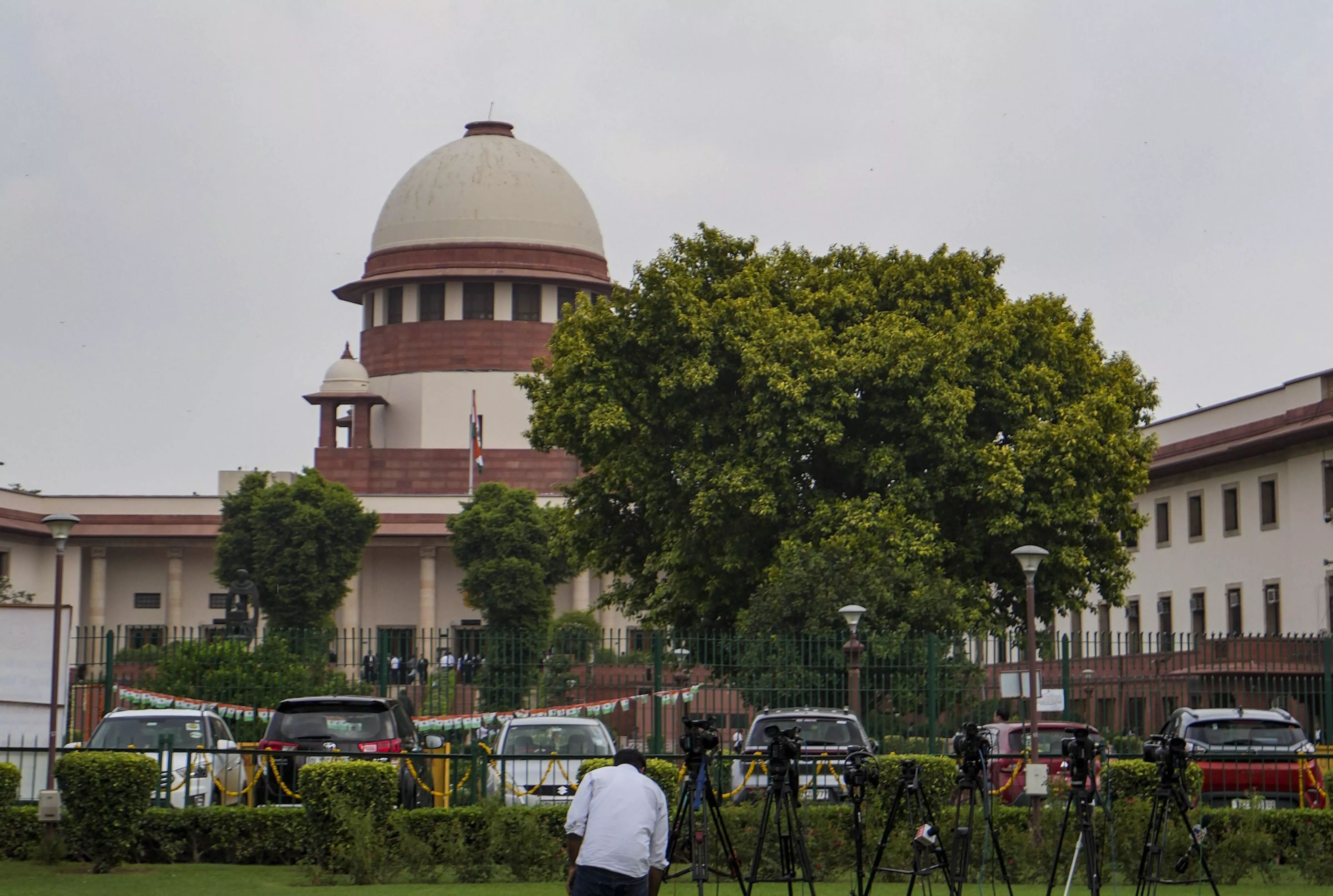
Supreme Court abolishes caste-based discrimination in jails
The court took suo motu cognisance of the instances of caste-based discrimination inside prisons; it asked states to submit compliance report of the ruling

In a landmark ruling, the Supreme Court on Thursday (October 3) quashed caste-based discrimination in jails in 11 states and directed the governments to amend their prison manuals within three months.
"State has a positive obligation to prevent such discriminations," Chief Justice DY Chandrachud and Justices JB Pardiwala and Manoj Misra held as they came down heavily on laws emanating from a colonial era.
Also read: SC stays HC-ordered police action against Sadhguru’s Isha Foundation
The judges issued a slew of directions to abolish such discrimination in prisons, and made it abundantly clear that all discrimination within jails based on castes has to go.
Caste-based discrimination
"All such provisions are held to be unconstitutional. All the states are directed to make changes (in prison manuals) in accordance with the judgment,” the chief justice said.
Also read: What is this 'yeah, yeah'? This is not a coffee shop: CJI Chandrachud pulls up lawyer in court
"The references to habitual offenders shall be in reference to the habitual offender legislations and all such references of habitual offenders in state prison manuals are declared as unconstitutional if they are based on castes," he said.
The court also took suo motu cognisance of the instances of caste-based discrimination inside prisons. It asked states to submit compliance report of the ruling.
Colonial laws
The chief justice said there were divisions of manual labour and barracks in jails in some states on the basis of identity of the prisoners.
"We have said that the criminal laws of the colonial era impact even the post-colonial period... The constitutional laws must uphold equality and dignity of citizens," he said.
"We have also dealt (in the judgement) with the concept of emancipation, equality and the fight against caste-based discrimination and said it cannot be won overnight," he said.
Provide dignity to prisoners
This court, he said, was making a contribution to the ongoing struggle against caste-based discrimination.
"State has a positive obligation to prevent the same and the courts have to adjudicate claims of indirect and systemic discrimination... Not providing dignity to prisoners is a relic of colonial period where they were dehumanised,” the judgement said.
“The Constitution mandates that prisoners have to be treated humanely and prison system must be aware of mental and physical state of prisoners," it said.
No inhuman work to prisoners
The verdict said the states will be held liable if the prisoners were made to do inhuman work and treated inhumanely.
"Hatred and contempt towards the castes showed inherent and pervasive bias towards such castes. The colonial history indicates that social hierarchy was imbibed in their administration," the chief justice said.
Discrimination against Scheduled Castes (SCs), Scheduled Tribes (STs) and the de-notified tribes have continued and the courts have to ensure there was implementation of protective legislations and ensure that marginalised people do not suffer, the judgment said.
Don’t judge prisoners by caste
"Castes cannot be used to discriminate against the marginalised ones," the ruling said.
"We have held that assigning cleaning and sweeping work to marginalised and assigning cooking to higher caste is nothing but violation of Article 15 (which forbids discrimination on grounds of religion, race, caste, gender or place of birth)," the chief justice said.
The Bench referred to a Uttar Pradesh law which provides that a person undergoing simple imprisonment will not do degrading and menial work unless his caste is used to do such jobs.
Untouchability won’t be accepted
"We hold that no group is born as a scavenger class or to do or not do menial jobs. The classes who can cook and who cannot cook are aspects of untouchability which cannot be permitted,” the ruling said.
“Sweepers should be chosen from ‘chandal’ caste is nothing but entirely opposed to substantive equality and a facet of institutional discrimination.”
The judges also said that prisoners shall not be permitted to undertake cleaning of sewers tanks in hazardous conditions.
Responses from states sought
In January, the apex court sought responses from the Centre and 11 states, including Uttar Pradesh and West Bengal, on a plea filed by Sukanya Shantha of Kalyan in Maharashtra.
The plea referred to the Kerala Prison Rules and said they lay down a distinction between a habitual and a re-convicted convict, holding those who are by habit a robber, house breaker, dacoit or thief should be classified and separated from other convicts.
